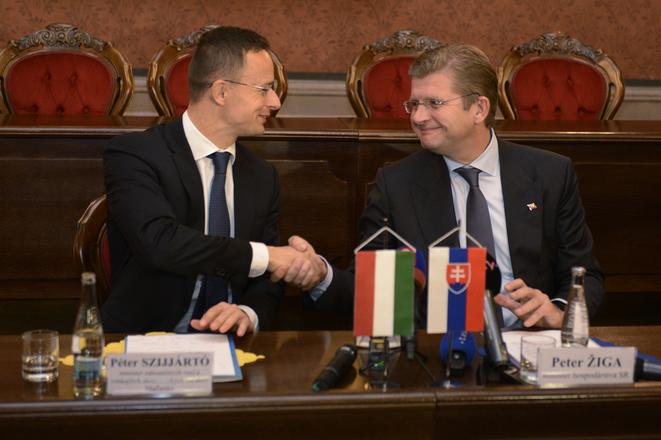Economy Minister Peter Žiga (Smer) and Hungarian Foreign Affairs and Trade Minister Péter Szijjártó signed a Memorandum of Understanding concerning the Eastring gas pipeline project in Košice on October 30.
Slovakia has been pushing for the implementation of the Eastring project for a long time. It should contribute towards strengthening energy security in central and south-eastern Europe and diversify gas supplies to Europe.
“It’s very important for Slovakia and Hungary to have secure supplies of energy resources and raw materials, while gas is among the most expensive,” said Žiga as cited by the TASR newswire. “That’s why the diversification of routes and resources, which Slovakia and Hungary need, is based on creating other possible routes apart from those that lead from the Russian Federation via the Ukraine, for example, to Slovakia or Hungary.”

He added that the inking of the memorandum means political support for the project at the highest level.
“Hungary and Slovakia have great scope for providing energy security to central Europe,” said Szijjártó. “We have around seven billion cubic metres of gas storage capacity. We have a very well-built pipeline system. All this allows us to distribute gas flowing into our country from the south to the west, north or any other direction.”
In order for the project to be successful, support is needed among governments, transmission system operators and regulators. Bulgaria was the first to express such support when the country signed a Memorandum of Understanding with Slovakia in July 2016. A similar memorandum was signed between the gas operators Slovak Eustream and Bulgartransgaz in June 2016.
The dual direction Eastring pipeline is a joint project for Slovakia, Romania, Bulgaria and Hungary with a planned capacity hovering at around 20-40 billion cubic metres of gas per year.


 Hungarian Foreign Affairs and Trade Minister Péter Szijjártó, left and Slovak Economy Minister Peter Žiga (source: TASR)
Hungarian Foreign Affairs and Trade Minister Péter Szijjártó, left and Slovak Economy Minister Peter Žiga (source: TASR)